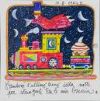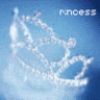|
ESL Forum:
Techniques and methods
in Language Teaching
Games, activities
and teaching ideas
Grammar and
Linguistics
Teaching material
Concerning
worksheets
Concerning
powerpoints
Concerning online
exercises
Make suggestions,
report errors
Ask for help
Message board
|
ESL forum >
Techniques and methods in Language Teaching > How to improve pronunciation
How to improve pronunciation
|

genzianella

|
How to improve pronunciation
|
|
hello everybody! I �m looking for some ideas to improve my students � pronunciation. I have already looked for ws and some of them are really useful, but what I �m looking for is a technique on how to teach them rather than handing them out worksheets. Any ideas? Should I probably use dvds? Thanks for your help! |
18 Feb 2009
|
|
|
|

Lancillotta:

|
|
Songs usually work . I ask students wich are their favourite songs and then I build lessons on them.
Sabrina |
18 Feb 2009
|
|
|

MissMelissa12

|
|
Hi Genzianella,
A technique that I find useful is to make them read aloud as you check their pronunciation in class. Then explain your students they should do the same, read over the same text aloud before going to bed. ( I did this when I was a student and always suggest my students to do so)
Songs can be a good tool for students to practice pronunciation at the same time they love it. You can sing with them in class...maybe half of a song for a week. And so son change the song every week.
Tongue twisters are also great. There are tongue twisters you can do to practice the /sh/ sound, the /p/ sound....many others.
Suggest them that compared to Spanish the pronunciation of consonants in English are stronger and that even if it sounds funny or strange, in English the pronunciation is exagerated most of the time. Also, the entonation that natives do when naturally speaking English is a little more dramatic.
Miss Melissa. 
|
18 Feb 2009
|
|
|

freddie

|
|
Also jazz chants can be a fun way to work on pronunciation
When they get used to them they especially love it when they write their own!  |
18 Feb 2009
|
|
|

libertybelle

|
Jenniferesl is wonderful.
You can find her at You Tube.
Doesn �t your book system have CD along with the texts?
L
|
18 Feb 2009
|
|
|

aftab57

|
|
Hi Genzianella,
Here aare some resources for you.
|
18 Feb 2009
|
|
|

Paola_

|
Depending on your students� age, you could give them tongue twisters to practice:
EASY
Four furious friends fought for the phone.
Green glass globes glow greenly.
There �s a sandwich on the sand which was sent by a sane witch.
Knife and a fork, bottle and a cork,
that is the way you spell New York.
-
I saw Susie sitting in a shoe shine shop
MEDIUM
I have got a date at a quarter to eight; I�ll see you at the gate,so don�t be late.
-
Peter Piper picked a peck of pickled peppers.
A peck of pickled peppers Peter Piper picked.
If Peter Piper picked a peck of pickled peppers,
Where �s the peck of pickled peppers Peter Piper picked?
Seven slick slimy snails, slowly sliding southward.
The thirty-three thieves thought that they thrilled the throne throughout Thursday.
Two witches, two watches: If two witches would watch two watches, which witch would watch which watch?
You could also give them short dialogues or passages to read aloud:
Ruth: It�s my birthday on Thursday. My sixth birthday.
Arthur: My seventh birthday�s on the 13th of next month, so I�m - let me think- 333 days older than you, Ruth.
Ruth: Do you always put your thumb in your mouth when you�re doing arithmetic, Arthur?
Arthur: My thooth�s loose, Ruth. See? I like maths. I came fouth out of 33. My father�s a mathematician.
Ruth: My father�s an author. He writes for the theater. We�re wealthy. When I�m 30 �ll have a thousand pounds.
Or you could even give them groups of sentences containing the sounds that your students find difficult to pronounce:
/p/ To rob Peter to pay Paul.
Practice makes perfect.
/w/ We weave well at "The Weavewell".
We never miss the water till the well runs dry.
/u:/ The proof of the pudding is in the eating.
Fortune favours fools.
/z/ The end justifies the means.
She�s as old as the hills.
etc.
|
18 Feb 2009
|
|
|

genzianella

|
|
aren �t you all just great! thanks a lot!! |
18 Feb 2009
|
|
|

demeuter

|
|
Hello,
A site the students can use to practice pronunciation is
Karina |
18 Feb 2009
|
|
|

Ivona

|
Very ... often ... when ... students ... read ... or ... speak ... English ... they ... make ... pauses ... between ... almost ... every ... word ... but ... i ... tell ... them ... that ... whentheyspeaktheirmothertonguetheydon �tdothat, butsayasentenceasifitwereasingleword sotheyshoulddothesamewithEnglish.
We practise saying sentences in chunks first and then as wholes.
... learningtoplaytennis (minding the weak vowels to become a �shwa � wherever possible to gain in speed)
... startlearningtoplaytennis
... whendidya
Whendidyastartlearningtplaytens?
Then we add the proper intonation. I ask them to exaggerate. The metaphor i use is the ECG (electrocardiogram) impulses. I don �t want them to read as if they were dead (flat line), but as if they were FULLY ALIVE and EXCITED. I want them to sing their sentences.
To that we add the body language and facial expressions. I INSIST on them. For example, when they �re asking Qs, they put their finger on the chin, cross their arms, raise their eyebrows, as if they were really wondering about the thing they are going to ask.
|
18 Feb 2009
|
|
|